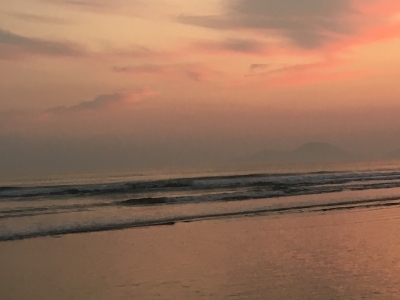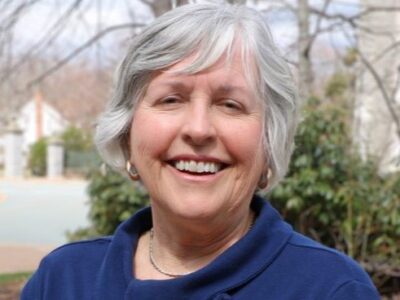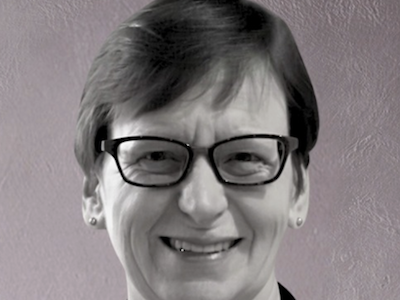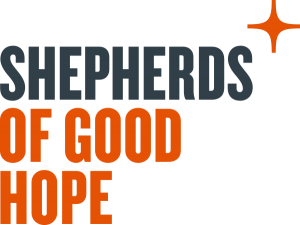 David Gourlay, CEO of the Shepherds of Good Hope Foundation, which supports the work of Ottawa-based Shepherds of Good Hope through ethical fundraising, spoke to PANL Perspectives about a successful series of music-video projects that raised awareness and funds for people facing homelessness.
David Gourlay, CEO of the Shepherds of Good Hope Foundation, which supports the work of Ottawa-based Shepherds of Good Hope through ethical fundraising, spoke to PANL Perspectives about a successful series of music-video projects that raised awareness and funds for people facing homelessness.
Question: These music videos are unique, powerful and beautiful. What’s the story behind them?

David Gourlay
David Gourlay: I started at Shepherds of Good Hope Foundation in April 2020, so it was during the pandemic. We had to significantly pivot in how we engaged community members, potential donors, fundraisers, everyone. This was the time to tap into curiosity and imagination. How would we get the word out to support our good work, to support individuals in our community who are homeless? We have a small team of seven people, and we had to reimagine fundraising and philanthropy.
I’m a huge music fan. One night, I was watching online music videos, and I saw a song from an organization, Playing for Change, which re-imagines and re-produces familiar songs by travelling the world and capturing different musicians, instruments and rhythms to create beautiful compilations of great songs. I heard an incredible version of Robert Johnson’s Walking Blues — and it triggered me. I said, “We should do this in Ottawa.”
We contacted a number of musicians, and chose the song Here Comes the Sun, by The Beatles, because everyone knows that song and because it’s about hope, optimism, opportunity — things you need if you’re living on the street during an Ottawa winter.
Q: Did the musicians volunteer their time? How did that work?
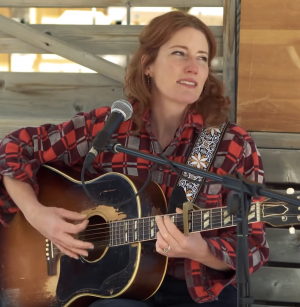
Kathleen Edwards appears in “Here Comes the Sun,” at Quitters, a landmark cafe in Stittsville.
Gourlay: I worked with a series of incredible local musicians who put their hearts and souls into their respective pieces. They played outdoors, at landmarks in the Ottawa-Gatineau region. We put Angelique Francis near the Beaver Pond, in Kanata. We put Theland Kicknosway at the Pimisi Light Rail Train Station, in LeBreton Flats. We put Davis Dewan on Abbey Road, in Alta Vista, because of course, Here Comes the Sun first appeared on The Beatles’ Abbey Road album. JW-Jones, who helped put together the entire production, had a musical bit on the Flora Footbridge, in the Glebe.
We wanted to support the musicians, so we offered compensation. We never approached them assuming they were going to volunteer their time. It was Covid, so concert halls and live music had stopped. Musicians struggled — and they’re still struggling. Not all of the musicians accepted compensation, but we always offered it. The majority accepted.
Q: How do you measure success with these videos?
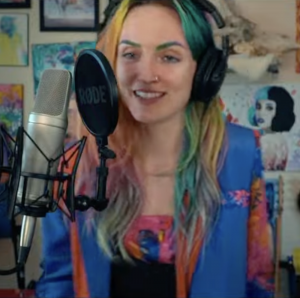
“Stand By Me” was the second music video created by Ottawa musicians, including singer Alanna Sterling, for Shepherds of Good Hope. Click photo to hear the song on YouTube.
Gourlay: Success was based on community response and feedback. Also, we raised money on Here Comes the Sun, which we launched as part of a virtual event in June of 2021. The video went viral, thanks in part to Alanis Morissette, who had volunteered for us when she was a teenager and who posted about the song on social media.
And the feedback we got from many community members, and from around the world, was, “What a great thing to do — to lift up our spirits and to give us a few minutes of something positive.” We wanted the public to enjoy their community and recognize certain musicians and sites in their city — like Hardeep Buckshi playing the sitar at the Museum of History, with Parliament in the background. These were really cool impressions of our community.
After that, we did the song Stand By Me, by Ben E. King, when the pandemic, due to Omicron, got severe for Shepherds of Good Hope — when it devastated our volunteers and staffing in early 2022.
The song after that was Lean On Me, which was positive and depicted the value of community members helping one another. Each of our songs speaks to the values of our organization: empathy, compassion, community, belonging, acceptance, hope, optimism.
Q: Do the music videos raise much money or awareness, or both?
Gourlay: These songs raise money, and we more than break even. We raised $15,000 on Here Comes the Sun, which was remarkable, because we’d never done a project like that before. But these music videos aren’t huge donor opportunities. The main purpose is to introduce our organization to Ottawa – to people who don’t know much about us. Music is a universal and powerful language. Most people like music, and when they see something that’s unique and creative, they stop, listen and give us a few minutes of their time. Each video contained the Shepherds of Good Hope brand, and we were lucky that many community members, such as some residents at The Oaks, spoke, danced, played the guitar and sang in the songs.
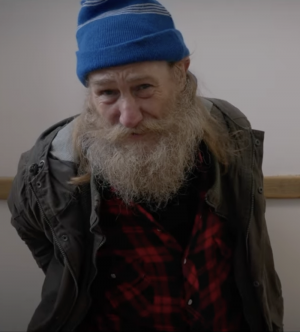
“We wanted the community to listen to Ozzy, to understand homelessness outside of stereotypes and stigma. Most homelessness is a temporary experience for people.” –David Gourlay.
So much of the work we do as fundraisers is to grow our brand, increase awareness, and hopefully, to create initiatives that resonate with people. Afterwards, people contact us to discuss philanthropic giving. The road to a donation isn’t just the direct ask. We have to be more imaginative to inspire people to consider a donation. We have to be more curious about how to incentivize people who aren’t giving.
It’s important for us to constantly incorporate into each video who we are as an organization. Here Comes the Sun included residents from The Oaks. Stand By Me included our volunteers from the kitchen, because volunteering during the pandemic was a huge challenge. Lean On Me included Ozzy, a shelter user who lives on the street and who’s very articulate about his struggles with trauma. We wanted the community to listen to him, to understand homelessness outside of stereotypes and stigma.
Q: What’s next in terms of music and Shepherds of Good Hope?
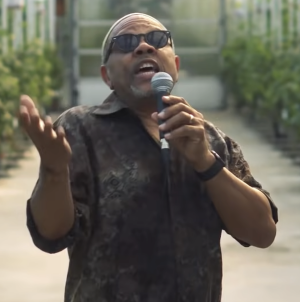
Singer-songwriter Michael Curtis Hanna.
Gourlay: We have a new video, the fourth, Hold Me Now, an original song by local musician Eric Eggleston and singer Michael Curtis Hanna. Eric wrote the song, which speaks to our organization’s purpose. We just released it.
We tentatively have plans for a fifth video next year. And, now, we’re thinking, “What can we do with five songs? Is there a fundraising concert in the future? Could we bring the musicians together to showcase their talents?” There are all kinds of creative ideas that we’re looking at. We can tell our story through music.
Q: Do you have advice for others who are considering doing similar arts projects?
Gourlay: My advice is to be creative, to be imaginative, to be curious.
Gourlay: Ask yourself, “How else can you connect?” Interconnectedness as a community, as people, is at the heart of being an effective fundraiser. You have to have an ability to challenge your thinking and your team’s thinking on how to connect with people. We talk in fundraising about the “case for support.” Long gone are the days when a case for support is a 20-page pdf, a 10-page pdf, that somebody may read the first paragraph of, or not. You have to be very creative, very imaginative, very curious about what’s going to attract a person’s attention, because that’s a huge challenge in today’s world, with the saturation of social media, information, misinformation, all this kind of stuff. It’s hard to capture someone’s attention today.
Obviously, in terms of the mechanics of these projects, you need partners. You need to build relationships with the music industry or whoever. We work with members of the Ottawa Music Industry Coalition, which does fantastic work in our city.
And any nonprofit organization will benefit from having a team that’s imaginative, creative and curious — a team that works together to come up with ideas. It’s important to connect differently with the community, to connect with prospects and donors, and to spread the message about your work.
David Gourlay, Chief Executive Officer at Shepherds of Good Hope Foundation, is on LinkedIn. Photos are courtesy of Shepherds of Good Hope.
Sign up for MPNL’s free newsletter, PANL Perspectives.
Tuesday, April 16, 2024 in Arts, For homepage, Fundraising, News & Events
Share: Twitter, Facebook
